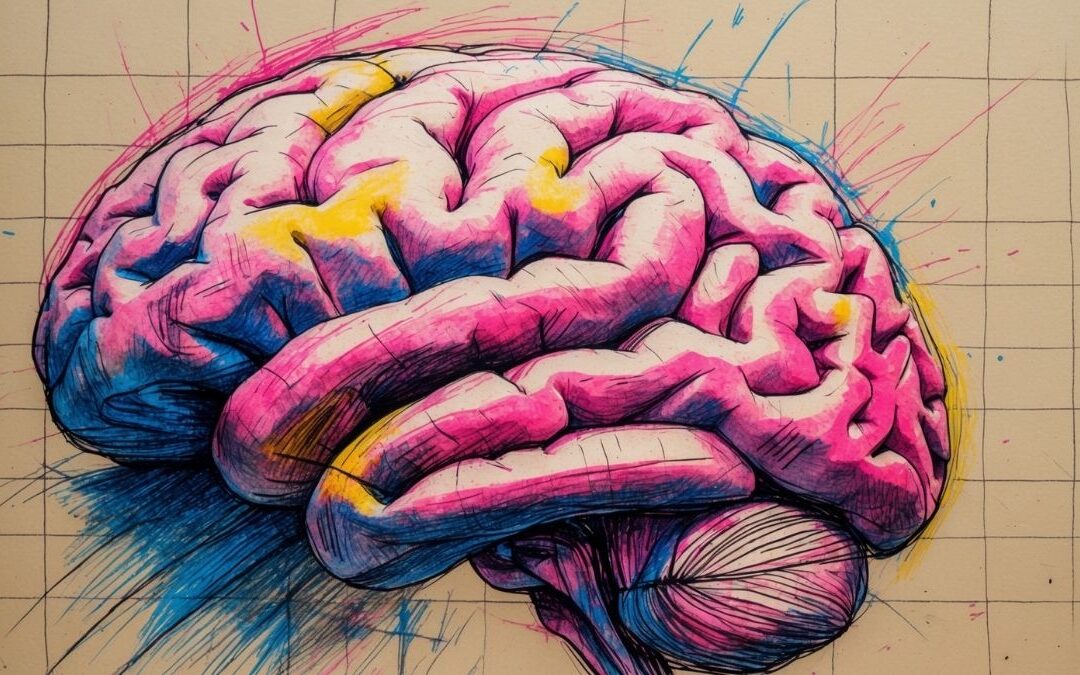- Deep Dive Intro
- The Genesis of Helplessness: From Experiments to Everyday Life
- Spotting the Signs: Are You in the Invisible Cage?
- Breaking Free: Reclaiming Agency and Cultivating Hope
- The Power of Belief: From Helplessness to Hopefulness
- Reading Comprehension Quiz
- Let’s Talk | Listening Comprehension Practice
- Listening Comprehension Quiz
- Let’s Learn Vocabulary in Context
- Vocabulary Quiz
- Let’s Discuss & Write
- Learn with AI
- Let’s Play & Learn
Deep Dive Intro
Have you ever felt like you’re banging your head against a brick wall, no matter how hard you try? Or perhaps you’ve found yourself in a situation where you just… gave up, even when a solution might have been within reach? If so, you might have encountered a phenomenon known as learned helplessness. It’s not about being genuinely incapable, but rather about learning, through repeated negative experiences, that your efforts don’t matter. This can lead to a pervasive sense of powerlessness, impacting various aspects of life. But how do we recognize these subtle signs in ourselves? Let’s unpack the invisible cage of learned helplessness and see if we can spot any familiar bars.
The Genesis of Helplessness: From Experiments to Everyday Life
The concept of learned helplessness originated from experiments conducted in the late 1960s by psychologists Martin Seligman and Steven Maier. They observed that dogs subjected to inescapable electric shocks later failed to escape shocks even when the opportunity was available. The dogs had learned that their actions had no effect on the unpleasant stimulus, leading them to a state of passivity and resignation.
While we humans (hopefully) aren’t dealing with inescapable electric shocks on a regular basis, the principle of learned helplessness can manifest in various everyday scenarios. Think about a student who consistently fails exams despite diligent studying, eventually leading them to believe that studying is futile. Or consider an employee who repeatedly proposes innovative ideas only to have them dismissed, eventually leading to a reluctance to contribute further. These repeated experiences of perceived lack of control can sow the seeds of learned helplessness.
Spotting the Signs: Are You in the Invisible Cage?
Recognizing learned helplessness in ourselves can be tricky because it often masquerades as simply being “realistic” or “not bothering.” However, there are several telltale signs that might indicate you’ve inadvertently constructed an invisible cage around yourself:
1. Passivity and Procrastination:
One of the most prominent signs is a general lack of initiative and a tendency to put things off, even tasks that are achievable. It’s as if a voice in your head whispers, “What’s the point? It won’t make a difference anyway.” This isn’t just garden-variety procrastination; it’s rooted in a deeper belief that your actions are ineffective. You might find yourself avoiding challenges or not even attempting tasks that you previously would have tackled with enthusiasm.
2. Low Motivation and Lack of Persistence:
When you believe your efforts are futile, your motivation naturally plummets. You might start projects with good intentions but quickly lose steam when faced with the slightest obstacle. The drive to persevere through difficulties diminishes because you’ve learned that persistence doesn’t lead to positive outcomes. It’s like trying to push a car with the brakes on – eventually, you just stop trying.
3. Feelings of Frustration and Resignation:
While initial attempts to exert control might be met with frustration, repeated failures can lead to a sense of resignation. You might start to believe that your situation is unchangeable and that you are powerless to improve it. This can manifest as a shrug of the shoulders, a sigh of defeat, or a general feeling of “whatever.”
4. Negative Self-Talk and Blaming Yourself:
Learned helplessness often comes with a hefty dose of negative self-talk. You might find yourself blaming yourself for negative outcomes, even when external factors are at play. The internal monologue might sound something like, “I knew I couldn’t do it,” or “I always mess things up.” This reinforces the feeling of incompetence and perpetuates the cycle of helplessness.
5. Difficulty Making Decisions:
When you feel powerless, even simple decisions can become overwhelming. You might feel like no matter what you choose, the outcome will be negative, leading to analysis paralysis and an inability to commit to a course of action. It’s like being presented with multiple doors, but believing that every single one leads to a dead end.
6. Increased Anxiety and Depression:
The chronic feeling of being unable to control your circumstances can significantly impact your mental well-being. Learned helplessness is often linked to increased levels of anxiety and a higher risk of developing depression. The persistent belief that you are powerless can lead to feelings of hopelessness and despair.
7. Neglecting Self-Care:
When you feel like your actions don’t matter, you might also start neglecting your own needs. Why bother eating well, exercising, or engaging in enjoyable activities if it won’t make a difference in the grand scheme of things? This can create a vicious cycle, further eroding your sense of well-being and making it even harder to break free from learned helplessness.
Breaking Free: Reclaiming Agency and Cultivating Hope
The good news is that learned helplessness is, as the name suggests, learned. This means it can also be unlearned. The process involves gradually challenging the belief that your actions are ineffective and building a sense of agency and control. Here are a few steps that can help:
1. Recognize the Pattern:
The first step is awareness. Start paying attention to situations where you might be exhibiting signs of learned helplessness. Identify the triggers and the thoughts and feelings that accompany them.
2. Challenge Negative Thoughts:
Actively question the negative self-talk that reinforces your sense of powerlessness. Are these thoughts based on evidence, or are they simply ingrained beliefs from past negative experiences?
3. Set Small, Achievable Goals:
Break down larger tasks into smaller, more manageable steps. Achieving these smaller goals can provide a sense of accomplishment and start to rebuild your belief in your ability to influence outcomes.
4. Focus on What You Can Control:
In any situation, there are aspects you can control and aspects you cannot. Shift your focus to what is within your power and take action in those areas.
5. Seek Support:
Talk to friends, family, or a therapist about your feelings of helplessness. Having a supportive network can provide encouragement and help you see things from a different perspective.
6. Celebrate Small Victories:
Acknowledge and celebrate even the smallest steps forward. This reinforces positive outcomes and helps to counteract the learned association between effort and failure.
7. Reframe Past Experiences:
Try to look at past negative experiences in a new light. What did you learn from them? Were there any factors outside of your control that contributed to the outcome?
The Power of Belief: From Helplessness to Hopefulness
Learned helplessness can feel like an invisible cage, limiting your potential and dimming your outlook on life. However, by recognizing the signs and actively working to challenge the underlying beliefs, you can begin to dismantle that cage and reclaim your sense of agency. Remember, the ability to influence your circumstances is not always about grand gestures; often, it starts with small steps and a renewed belief in your own power. Cultivating hope and recognizing that your efforts can indeed make a difference is the key to breaking free from the grip of learned helplessness and stepping into a more empowered and fulfilling life.
Reading Comprehension Quiz
Let’s Talk | Listening Comprehension Practice
Listening Transcript: Please don’t read the transcript before you listen and take the quiz
So, learned helplessness, huh? That’s a bit of a downer topic, isn’t it? But also super relatable, at least for me. I was reading through the article, and I have to admit, a few lightbulbs went off above my head. It’s like, “Oh, so that’s why I sometimes just… don’t even bother.”
The whole idea of learning that your efforts don’t matter? That’s powerful stuff. It reminded me of when I was a kid trying to learn to ride a bike. I must have fallen a hundred times. Seriously, my knees looked like they’d been attacked by a cheese grater. And after a while, I just thought, “Maybe biking isn’t for me. Maybe I’m just not a bike person.” I kind of gave up for a while. Looking back, that was probably a little bit of learned helplessness creeping in, right? I’d experienced so much failure that I started to believe I was incapable, even though with a bit more perseverance, I probably could have gotten the hang of it.
The article mentioned passivity and procrastination. Oh boy, can I relate to that! There are definitely times when I have this big task looming, something I know I need to do, but I just… can’t bring myself to start. It’s not even that I don’t want to do it; it’s more like this feeling that even if I try, I’ll probably mess it up anyway, so why even bother? It’s like this invisible weight holding me back. Anyone else ever feel that way? It’s so frustrating because you know you’re capable, but this mental block just won’t budge.
And the low motivation and lack of persistence? Yep, guilty as charged. I’ll start something with all the enthusiasm in the world, like learning a new language or starting a new hobby. But as soon as I hit the first real obstacle, the first time it gets a little challenging, my motivation just evaporates. It’s like my brain says, “See? Told you it was too hard. Let’s go watch some cat videos instead.” It’s a real struggle to push through those moments when you feel like you’re not making progress.
The negative self-talk part really resonated too. That little voice in your head that pipes up whenever you make a mistake or face a setback, saying, “You knew you couldn’t do it,” or “You always fail at this.” It’s like having your own personal heckler living rent-free in your brain. And the more you experience failures, the louder that voice seems to get. It’s a vicious cycle.
Thinking about difficulty making decisions… that one I hadn’t really connected to learned helplessness before, but it makes sense. If you feel like no matter what you choose, things are going to go wrong, then making a decision becomes this huge, anxiety-ridden event. It’s like you’re constantly bracing for the worst outcome, regardless of what you pick.
The link between learned helplessness and anxiety and depression also makes a lot of sense. Feeling powerless all the time? That’s bound to take a toll on your mental well-being. It’s like being stuck in a maze with no exit in sight. It’s enough to make anyone feel hopeless.
And the bit about neglecting self-care… I’ve definitely been there. When you feel like nothing you do matters, it’s easy to let the basics slide – eating well, getting enough sleep, doing things you enjoy. It’s like, “What’s the point?” But of course, that just makes you feel even worse, creating this downward spiral.
The article also gave some good tips on how to break free from this, which is encouraging. Recognizing the pattern is definitely the first step. I think just understanding that this feeling has a name – learned helplessness – and that it’s something other people experience too, is already a bit of a relief.
Challenging those negative thoughts is going to be tough, though. That inner critic can be pretty persistent. But the idea of setting small, achievable goals seems like a good starting point. It’s about building up those little wins to counteract the feeling of constant failure.
Focusing on what you can control is also key. There are so many things in life that are outside of our control, and dwelling on those just reinforces that feeling of helplessness. But shifting our focus to the areas where we can make a difference, no matter how small, can be empowering.
Have you ever recognized any of these signs in yourself? Maybe in a particular area of your life, like your career, your relationships, or a hobby? What do you think are some common situations that might lead to learned helplessness? And what are some small steps we can all take to start reclaiming our sense of agency? It’s definitely something I’m going to be thinking more about. Maybe we can all help each other break out of those invisible cages.
Listening Comprehension Quiz
Let’s Learn Vocabulary in Context
Alright, let’s zoom in on some of the words and phrases we used when we were talking about learned helplessness. These are terms that can pop up in all sorts of discussions about psychology and personal development, so getting a good grasp on them can really enhance your understanding and communication.
First, we talked about pervasive sense of powerlessness. “Pervasive” means spreading widely or present throughout an area or a group of people. So, a pervasive sense of powerlessness is a feeling of not having control that affects many or all aspects of your life. You might experience a pervasive sense of sadness after a significant loss, or a pervasive sense of optimism when things are going well.
Then we used the word futile. If something is futile, it means it’s pointless or ineffective; it’s unlikely to produce any useful result. We talked about the belief that studying is futile if you consistently fail exams despite your efforts. You might describe trying to argue with someone who has already made up their mind as a futile endeavor.
We also touched on the idea of passivity and resignation. “Passivity” refers to a lack of action or participation. “Resignation” is the acceptance of something unpleasant that one cannot avoid. In the context of learned helplessness, passivity is the tendency to not take action, and resignation is the feeling that your situation is unchangeable. Someone might show passivity by not speaking up in a meeting, and they might feel resignation about a difficult work situation they believe they can’t improve.
The article mentioned sow the seeds of. This is an idiom that means to do something that will cause a particular situation to develop. Repeated negative experiences can sow the seeds of learned helplessness. You might say that disagreeing with your boss constantly can sow the seeds of discontent in the workplace.
We talked about garden-variety procrastination. “Garden-variety” is an informal way of saying ordinary or common. So, garden-variety procrastination is the everyday tendency to put things off that most people experience from time to time. This is different from the procrastination that stems from learned helplessness, which is rooted in a belief that your efforts won’t matter.
Then there’s the phrase plummets. If something plummets, it decreases rapidly and significantly. We said that when you believe your efforts are futile, your motivation naturally plummets. The stock market might plummet after bad news, or someone’s mood might plummet after receiving disappointing news.
We discussed the idea of diminishes. To diminish means to make or become less. The drive to persevere diminishes when you’ve learned that persistence doesn’t lead to positive outcomes. The sound of the music might diminish as you walk away, or someone’s enthusiasm for a project might diminish over time.
The article brought up analysis paralysis. This is a state of over-analyzing a situation so that a decision or action is never taken, in effect paralyzing the outcome. When you feel powerless, even simple decisions can lead to analysis paralysis. Trying to choose a restaurant from a huge list of options can sometimes lead to analysis paralysis.
We also used the phrase vicious cycle. This refers to a sequence of reciprocal cause and effect in which two or more elements intensify and perpetuate each other, leading to a worsening situation. Neglecting self-care when you feel helpless can create a vicious cycle, making you feel even worse. Lack of sleep can lead to irritability, which in turn can make it harder to fall asleep, creating a vicious cycle.
Finally, we talked about reclaiming agency. “Agency” in this context refers to the capacity or power to act or to make one’s own choices. So, reclaiming agency means taking back that power and control over your life and decisions. Overcoming learned helplessness involves reclaiming agency and believing in your ability to influence outcomes. After feeling stuck in a rut, someone might take steps to reclaim their agency by setting goals and taking action.
So, those are ten key words and phrases from our discussion on learned helplessness. Understanding these terms will not only help you better comprehend the topic but also enrich your vocabulary for everyday conversations and discussions about personal growth and psychology.
Vocabulary Quiz
Let’s Discuss & Write
Alright, now that we’ve really dug into learned helplessness, let’s keep the conversation going. Here are some questions to ponder and maybe share your thoughts on in the comments:
- Can you recall a specific situation in your life where you might have exhibited signs of learned helplessness? What were the circumstances, and how did you eventually (or did you?) overcome it?
- The article focuses on individual learned helplessness. Do you think this phenomenon can also occur on a larger scale, within communities or even entire societies? If so, what might be some examples and their potential consequences?
- The article offers several strategies for breaking free from learned helplessness. Which of these strategies do you think would be the most challenging to implement, and why?
- How might learned helplessness manifest differently in various aspects of life, such as in relationships, at work, or in pursuing personal goals? Can you think of specific examples for each?
- Do you believe that modern society, with its constant exposure to information and potential for comparison, might inadvertently contribute to feelings of learned helplessness for some individuals? How so?
Now, let’s get those creative writing juices flowing!
Writing Prompt:
Imagine you are writing a short story about a character who is experiencing learned helplessness in their career. Describe a specific situation where they face a challenge, showcase their thoughts and feelings that reflect learned helplessness, and then depict a turning point where they begin to reclaim their agency.
Directions:
- Start by setting the scene and introducing your character and their career.
- Describe a specific work-related challenge the character encounters.
- Illustrate the character’s thoughts and feelings that demonstrate signs of learned helplessness (e.g., passivity, negative self-talk, lack of effort).
- Introduce an event or interaction that serves as a catalyst for change.
- Show the character beginning to challenge their helpless mindset and take small steps towards reclaiming their agency.
- Conclude by hinting at the potential positive outcomes of this shift in perspective.
Tips for Approaching the Prompt:
- Focus on showing, not just telling: Use vivid descriptions of the character’s actions, thoughts, and emotions to convey their learned helplessness and their journey towards change.
- Create a relatable character: Give your character realistic struggles and motivations.
- Make the turning point believable: The catalyst for change should feel natural within the context of the story.
- Emphasize the internal shift: Focus on the character’s changing mindset and beliefs.
- End with a sense of hope and possibility.
Sample Phrases You Might Use:
- “He slumped back in his chair, the familiar feeling of futility washing over him.”
- “Why bother? He knew from past experience that his ideas would just be dismissed.”
- “A small voice inside whispered, ‘You’re not good enough.'”
- “But then, something shifted…”
- “For the first time in months, a flicker of determination sparked within her.”
- “Maybe, just maybe, things could be different.”
Let’s get those stories started!
Learn with AI
Disclaimer:
Because we believe in the importance of using AI and all other technological advances in our learning journey, we have decided to add a section called Learn with AI to add yet another perspective to our learning and see if we can learn a thing or two from AI. We mainly use Open AI, but sometimes we try other models as well. We asked AI to read what we said so far about this topic and tell us, as an expert, about other things or perspectives we might have missed and this is what we got in response.
Alright everyone, let’s put on our expert hats and delve a little deeper into the fascinating, and sometimes frustrating, phenomenon of learned helplessness. We’ve covered the basics, but there are a few more layers to peel back.
One thing that’s really important to understand is that learned helplessness isn’t just about giving up. It’s about a specific belief that your actions won’t make a difference, and this belief is usually formed through repeated exposure to uncontrollable negative events. This is a key distinction. Someone might choose not to act for various reasons, but learned helplessness implies a deeper, more ingrained sense of powerlessness.
We also touched on the idea of individual differences, but it’s worth emphasizing that not everyone who experiences repeated negative events will develop learned helplessness. Factors like personality, prior experiences, and the availability of social support can all play a significant role in whether or not someone develops this pattern of thinking and behavior. Some individuals might have a more resilient personality or a stronger belief in their own efficacy, which can buffer them against the development of learned helplessness.
Another interesting area to consider is the potential link between learned helplessness and physical health. Chronic stress, which often accompanies feelings of powerlessness, can have negative effects on the immune system and increase the risk of various health problems. So, addressing learned helplessness isn’t just about improving mental well-being; it can also have tangible benefits for physical health.
We also briefly mentioned the concept of learned optimism, which is essentially the opposite of learned helplessness. Instead of attributing negative events to internal, stable, and global causes (as someone with learned helplessness might), someone with learned optimism tends to explain negative events as being external, temporary, and specific. Cultivating learned optimism is a powerful tool for building resilience and preventing learned helplessness. This involves consciously reframing negative experiences in a more positive and empowering light.
Furthermore, the concept of agency, which we mentioned in the context of reclaiming it, is really central to overcoming learned helplessness. Agency is the feeling that you have control over your own life and can influence your outcomes. Building agency involves setting goals, taking action, and experiencing the positive results of your efforts, even if they are small at first. It’s about shifting from a passive recipient of circumstances to an active participant in shaping your own life.
Finally, it’s important to remember that overcoming learned helplessness can be a process, and it might require professional support. If you or someone you know is struggling with persistent feelings of powerlessness, seeking help from a therapist or counselor can provide valuable tools and strategies for breaking free from this pattern. They can help you identify the root causes of your learned helplessness, challenge negative thought patterns, and develop a stronger sense of self-efficacy.
So, while learned helplessness can feel like an invisible cage, understanding its nuances, recognizing the factors that contribute to it, and actively cultivating agency and optimism can help individuals break free and lead more empowered lives.










0 Comments